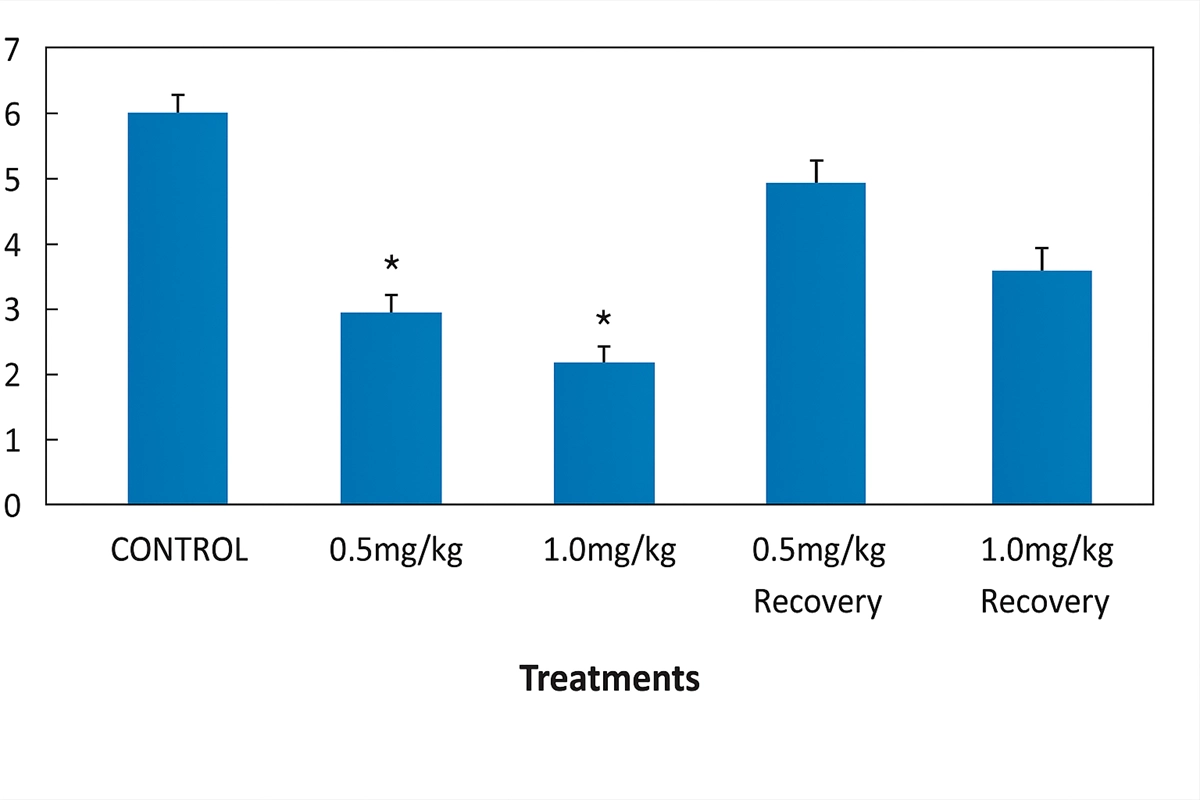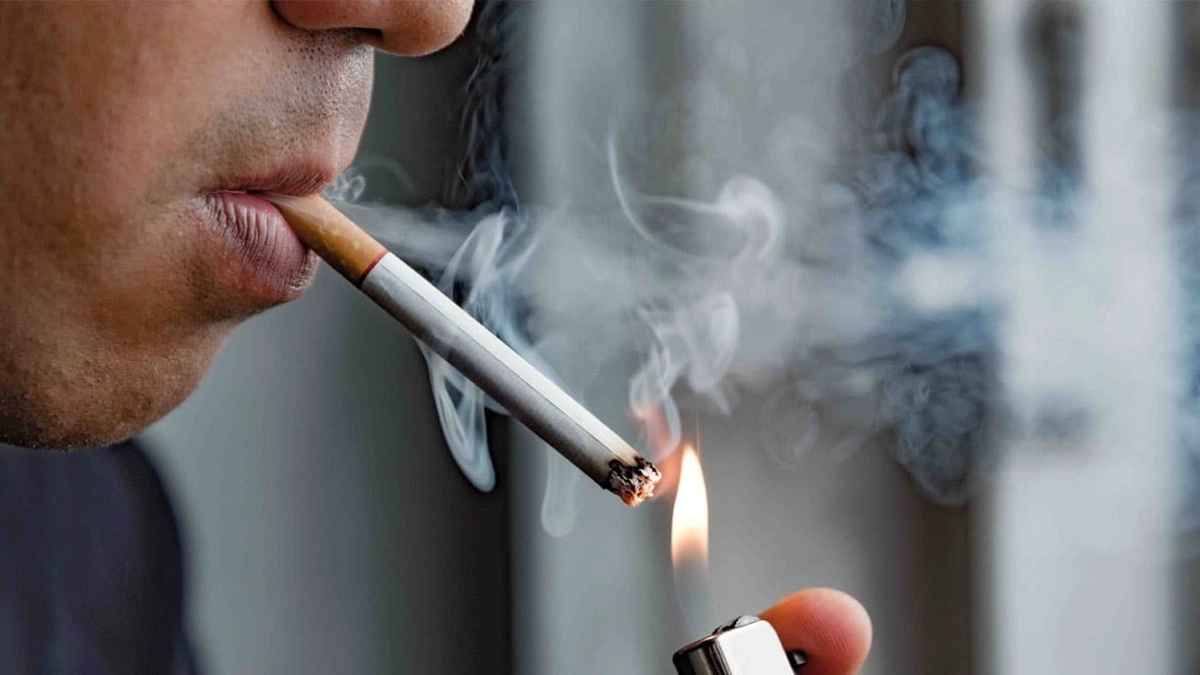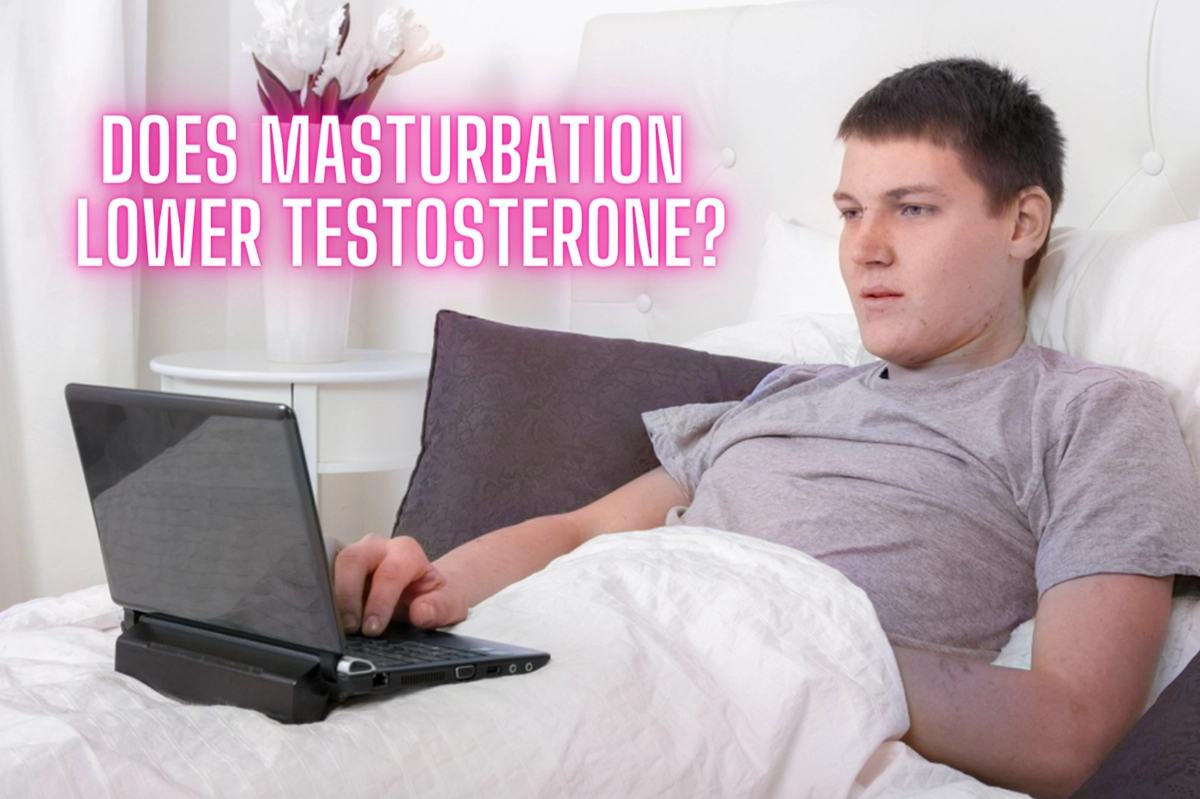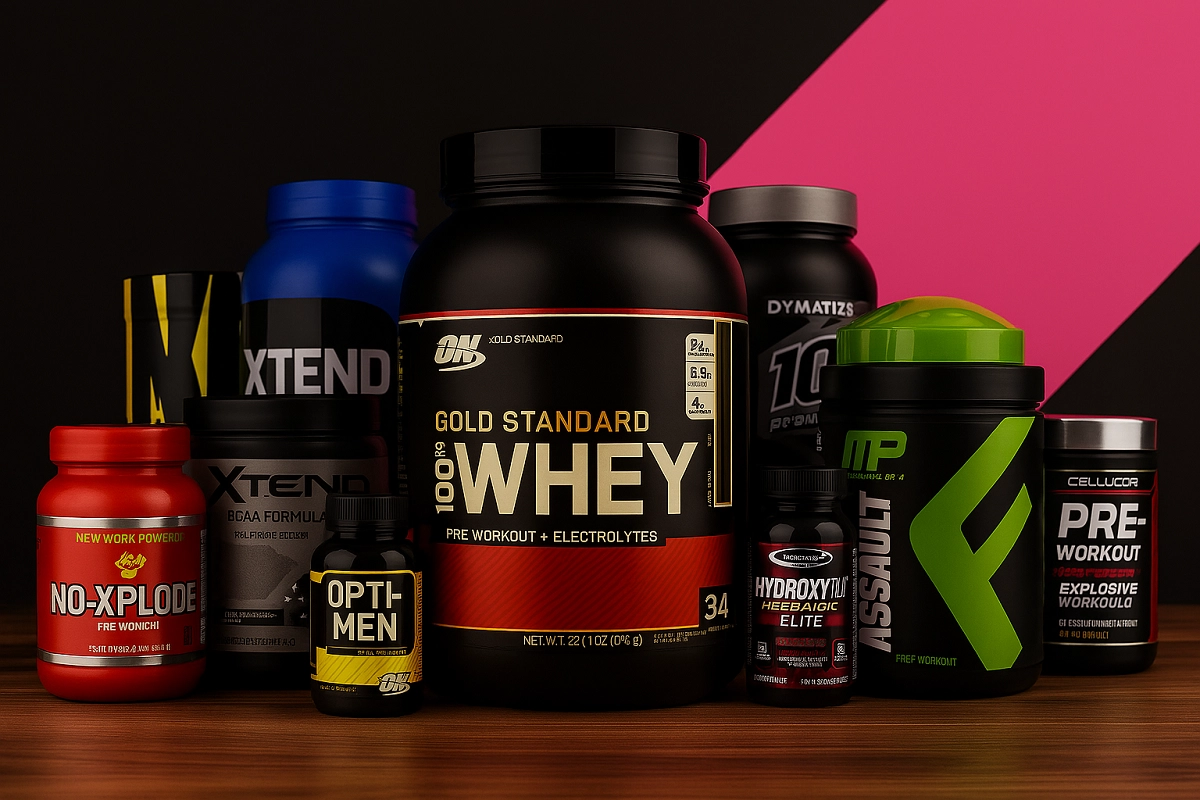Studies show that 68% of male smokers express concerns about nicotine’s impact on their testosterone levels. You’ve likely wondered about this too, especially if you’re working to build muscle mass like Arnold did in his prime.
While initial research painted a simple picture of nicotine lowering testosterone, modern studies reveal it’s far more complex, with different delivery methods showing varying effects on hormonal balance. Understanding these nuances could be essential for your fitness goals.
Introduction To Nicotine And Testosterone
Many people wonder about the relationship between nicotine and testosterone. Understanding both substances can help. Let’s explore their roles and effects on the body.
The Role Of Nicotine In The Body
Nicotine is a chemical found in tobacco. It affects the brain and body. Smokers use it for its stimulating effects.
Nicotine affects the brain’s reward system. It releases dopamine, making users feel good. It also increases heart rate and blood pressure.
Nicotine is addictive. Over time, it can harm the body. It affects the lungs, heart, and other organs.
Testosterone: Functions And Importance
Testosterone is a key hormone in the body. It is essential for both men and women. It helps with muscle growth, bone health, and energy levels.
In men, testosterone is made in the testes. In women, it is made in the ovaries. Both sexes need it for health.
Testosterone affects mood and libido. It also helps with fat distribution and muscle mass. Low levels can cause problems, like tiredness and depression.
| Nicotine | Testosterone |
| Found in tobacco | Produced in the testes and ovaries |
| Addictive | Essential for muscle growth |
| Increases heart rate | Affects mood and libido |
Understanding nicotine and testosterone helps. It shows how they interact with the body. This knowledge is necessary for health and well-being.

Scientific Research On Nicotine And Hormones
Understanding nicotine’s effects on hormones is crucial for health insights. Scientific studies explore how nicotine impacts the endocrine system. This research can help us understand any potential links to testosterone levels.
#Studies On Nicotine’s Impact On the Endocrine System
Researchers have conducted numerous studies to examine nicotine’s impact on the endocrine system. The endocrine system includes glands that release hormones. These hormones regulate many body functions, such as metabolism, growth, and mood.
Studies suggest that nicotine can influence hormone levels. This includes hormones like cortisol and adrenaline. These hormones are critical for stress response and energy regulation.
| Study | Findings |
| Study A | Nicotine increases cortisol levels. |
| Study B | Nicotine raises adrenaline levels. |
#Testosterone Levels In Smokers Vs. Non-smokers
Several studies compare testosterone levels in smokers and non-smokers. The goal is to see if nicotine affects testosterone production. Testosterone is a key hormone for muscle mass, bone density, and reproductive health.
- Study C: Smokers had lower testosterone levels than non-smokers.
- Study D: Nicotine users showed a decrease in testosterone over time.
These studies highlight a potential negative impact on testosterone due to nicotine use. This can have various health implications, especially for men.
- Lower muscle mass
- Reduced bone density
- Decreased reproductive health
Physiological Effects Of Nicotine
Nicotine is a stimulant found in tobacco products. It affects the body in multiple ways. Understanding its physiological effects is crucial. This section explores nicotine’s impact on the body and its influence on stress and hormones.
1. How Nicotine Affects The Body
Nicotine quickly enters the bloodstream. It reaches the brain in seconds. The compound binds to receptors, releasing dopamine. Dopamine creates a feeling of pleasure. This process makes nicotine addictive.
Nicotine increases heart rate and blood pressure. It constricts blood vessels. These changes put extra strain on the cardiovascular system. Long-term use can lead to heart disease.
Nicotine also affects the digestive system. It can lead to increased metabolism, and users might experience reduced appetite. These changes can impact weight and overall health.
2. Nicotine’s Influence On Stress And Hormones
Nicotine impacts the body’s stress response. It affects cortisol levels. Cortisol is a hormone linked to stress. Nicotine can increase cortisol in the blood.
Higher cortisol levels can lead to various health issues. These include impaired immune function and increased belly fat.
Nicotine also affects other hormones. It influences the release of adrenaline. Adrenaline prepares the body for “fight or flight.” This can lead to increased alertness and energy.
Some studies suggest that nicotine might influence testosterone levels. The relationship is complex and not fully understood. More research is needed to confirm these effects.
Below is a table summarizing nicotine’s influence on key hormones:
| Hormone | Effect |
| Dopamine | Increased release, creating pleasure |
| Cortisol | Increased levels, leading to stress |
| Adrenaline | Increased release, enhancing alertness |
| Testosterone | Potential influence, needs more research |
Testosterone’s Metabolic Pathway
The metabolic pathway of testosterone is complex. It involves several processes within the body. Understanding these pathways can shed light on how substances like nicotine may impact testosterone levels.
#Biosynthesis Of Testosterone
Testosterone is produced in the testes in men. In women, it is made in the ovaries. The adrenal glands also produce small amounts of testosterone in both sexes.
The process begins with cholesterol. Cholesterol is converted into pregnenolone. Pregnenolone is then converted into progesterone. Progesterone eventually becomes testosterone.
Here’s a simplified table of the biosynthesis process:
| Starting Material | Intermediate | End Product |
| Cholesterol | Pregnenolone | Testosterone |
#Factors Influencing Testosterone Levels
Several factors can influence testosterone levels, including age, diet, and lifestyle. Stress and sleep quality also play a role.
Here are some key factors:
- Age: Testosterone levels decrease with age.
- Diet: A balanced diet supports healthy testosterone levels.
- Exercise: Regular exercise can boost testosterone.
- Stress: High stress levels can lower testosterone.
- Sleep: Poor sleep quality affects testosterone production.
Nicotine is another factor. Its impact on testosterone is still under research. Some studies suggest that nicotine may increase testosterone. Other studies show it could lower levels.
How Nicotine Affects Testosterone Levels?
Although research on nicotine’s effects on testosterone remains complex and sometimes contradictory, studies have shown that this stimulant can significantly impact your hormone levels in multiple ways.
If you’re using nicotine products, whether through smoking or alternatives like patches and gum, you’re potentially putting your hormonal health at risk. The effects of smoking and nicotine consumption can directly influence your reproductive hormones, with some research indicating a significant decline in testosterone levels over time.
While scientists are still working to fully understand the relationship between nicotine and testosterone levels, current evidence suggests that reducing or eliminating nicotine intake might help maintain healthy hormone balance.
With over 61 million Americans using nicotine products, it’s essential to reflect on how these substances could be affecting your body’s natural testosterone production.
Does Nicotine Affect Testosterone Levels?
When it comes to nicotine’s effects on testosterone levels, the research presents a complex and sometimes contradictory picture. Studies show varying impacts on hormone production and reproductive function depending on how you consume nicotine.
Research indicates that smoking can increase testosterone levels in men while having minimal effect on women’s hormonal balance.
However, different forms of nicotine consumption yield different results. E-cigarette users show lower sperm counts but normal testosterone levels, while traditional smokers demonstrate higher testosterone but reduced reproductive function.
The impact of nicotine through chewing tobacco presents another variation, with users showing decreased sperm counts but elevated testosterone levels.
These mixed findings suggest that nicotine’s influence on testosterone levels isn’t straightforward and may depend on various factors, including the method of consumption and individual physiology.
Contrasting Views In Research
There is an ongoing debate about whether nicotine increases testosterone. Some studies show positive results, while others show no effect or negative impact. It’s essential to examine both sides to understand the whole picture.
1. Evidence Supporting Increased Testosterone
Some studies suggest that nicotine can boost testosterone levels. Researchers found that nicotine stimulates the release of certain hormones. This can lead to an increase in testosterone production. In a study involving male smokers, results showed higher testosterone levels compared to non-smokers.
Another study observed similar results in animal models. Nicotine seemed to trigger the hypothalamus to release hormones. This then led to increased testosterone production. These findings support the idea that nicotine might raise testosterone levels.
2. Counterarguments And Research Gaps
Other studies contradict these findings. Some research shows no significant change in testosterone levels with nicotine use. A study involving non-smokers who were given nicotine patches showed no increase in testosterone levels. These findings suggest that the relationship between nicotine and testosterone is complex.
There are also gaps in research. Many studies have small sample sizes or short durations. This makes it hard to draw firm conclusions. Other factors like diet, stress, and overall health also play roles. More extensive research is needed to fully understand the impact of nicotine on testosterone.
| Study Type | Findings | Sample Size |
| Human (Smokers) | Increased Testosterone | 50 |
| Animal Models | Increased Testosterone | 30 |
| Human (Non-Smokers with Patches) | No Change | 40 |
In summary, the relationship between nicotine and testosterone remains unclear. More research is needed to provide definitive answers.
Health Implications Of Nicotine On Testosterone

Nicotine affects the body in many ways. One area of concern is its impact on testosterone levels. Testosterone is a key hormone for both men and women. Understanding how nicotine affects testosterone can help you make healthier choices.
#Potential Risks For Hormone Imbalance
Nicotine can disrupt the balance of hormones. This might cause several problems. Here are some potential risks:
- Lowered testosterone levels
- Increased cortisol production
- Reduced fertility
These risks affect both men and women. Hormone imbalance can lead to serious health issues. It’s essential to be aware of these risks.
#Long-term Consequences For Men And Women
Long-term nicotine use has more severe effects. For men, it can result in:
- Decreased muscle mass
- Lowered libido
- Increased body fat
For women, the consequences include:
- Irregular menstrual cycles
- Reduced bone density
- Increased risk of heart disease
Both genders can face mental health issues due to hormone imbalance. These include mood swings, anxiety, and depression.
| Gender | Potential Long-Term Effects |
| Men | Decreased muscle massLowered libidoIncreased body fat |
| Women | Irregular menstrual cycles, reduced bone densityIncreased risk of heart disease |
Does Nicotine Withdrawal Affect Testosterone Levels?
Understanding nicotine withdrawal’s impact on testosterone levels remains challenging due to limited research in this area.
While it’s understood that nicotine withdrawal can cause various health issues, including anxiety, depression, and physical symptoms, there’s not enough scientific evidence to definitively link it to changes in hormonal balance or effects on testosterone.
What we do understand is that nicotine withdrawal can trigger numerous physical and emotional responses in your body.
The relationship between smoking cessation and hormonal changes has been primarily studied in women, where researchers found connections to estrogen and progesterone fluctuations.
However, the specific impact on testosterone levels during withdrawal from long-term nicotine use remains unclear.
If you’re concerned about your hormonal health while quitting smoking, it’s best to consult with a healthcare provider who can monitor your progress.
To Wrap It All Up
You’ll want to approach nicotine’s effects on testosterone with caution, as the research isn’t as clear-cut as scrolling through your Instagram feed. While smoking traditional cigarettes might temporarily boost T-levels, it’s like putting a Band-Aid on a broken arm – the long-term damage isn’t worth it.
If you’re currently using nicotine, quitting can help restore your natural hormone balance and optimize your body’s testosterone production.
FAQs
Can Nicotine Boost Testosterone?
Nicotine does not reliably boost testosterone. Some studies show slight increases, but these effects are inconsistent and often outweighed by nicotine’s negative impact on hormone balance and cardiovascular health. Long-term use may lower testosterone due to stress and disrupted endocrine function.
Does Nicotine Affect Erections?
Nicotine negatively affects erections by constricting blood vessels and reducing blood flow to erectile tissue. It impairs endothelial function and lowers nitric oxide availability, both essential for achieving and maintaining erections. Long-term use increases the risk of erectile dysfunction by damaging the vascular and nervous systems.
Does Nicotine Affect Sperm?
Nicotine negatively affects sperm by reducing sperm count, motility, and morphology. It increases oxidative stress, damages DNA, and impairs testosterone production, all of which harm male fertility. Chronic nicotine use has been linked to lower semen quality and higher rates of infertility.
Does Nicotine Affect Muscle Growth?
Nicotine negatively affects muscle growth by reducing blood flow, impairing recovery, and lowering testosterone levels. It disrupts protein synthesis and increases cortisol, a catabolic hormone that breaks down muscle tissue. Long-term nicotine use limits strength gains and hinders overall hypertrophy.
How Many Cigarettes a Day Is Safe?
No number of cigarettes per day is considered safe. Even smoking 1–2 cigarettes daily significantly increases the risk of heart disease, stroke, and cancer. Health risks accumulate with every cigarette, and long-term damage can occur even at low consumption levels.











